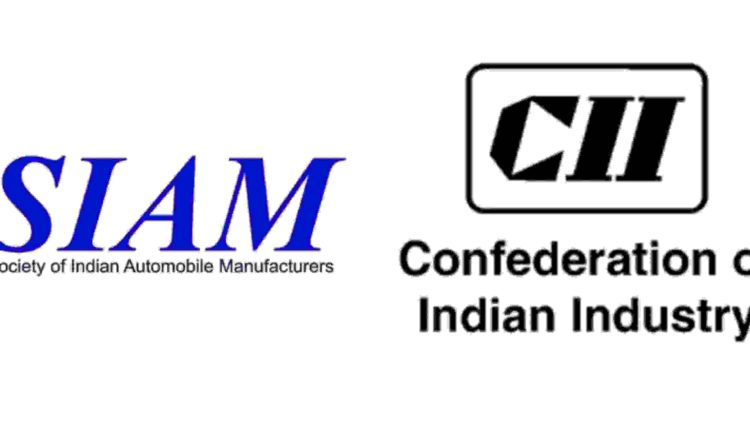
Patiala, 17 October 2018: Industry bodies Confederation of Indian Industry (CII) and Society of Indian Automobile Manufacturers (SIAM) organised a Project Launch Event today at village Jasso Majra, Patiala. Sukh da Saah, a joint initiative which both organisations have initiated to mitigate crop residue burning, which is a major cause of air pollution and degradation of soil quality. With the efforts of CII and SIAM, 1500 farmers belonging to three Cooperative Societies, namely, Jasso Majra, Bhorey and Mallewar Farmer Multipurpose Cooperative Societies have come together and have pledged to make the entire village cluster, of 7000 acres of farm land to go stubble burning free.
The Sukh da Saah project is supporting farmers in building awareness; procure Happy Seeder, Mulcher & other required farm machines and providing on field monitoring and support. Industry members such as Cummins, Birlasoft and other SIAM members have provided financial support for this project. CII Foundation with support from SIAM is implementing the on ground activities.
Mr. Showkat Ahmad Parray, ADC, Patiala said “During green revolution days, initially farmers faced lot of challenge. But eventually the Green revolution was beneficial and, as we all know, it raised the economic status of farmers. Today, farmers in Punjab face a similar challenge. As we resolve the challenges of widespread crop residue burning and water availability, we are moving towards creating ecological solutions for future.”
Speaking on the occasion, Dr. Rashid Hassan, Advisor, SIAM said “We are grateful for the support that we have received from farmers. Sukh da Saah is a pilot project that will enable adopting alternative stubble management techniques for improving air quality across the state. We need to understand that crop residue mixed with soil reaps best benefits”
Mr. Charanjit Singh, Director Punjab Pollution Control Board congratulated the CII-SIAM for organising Sukh da Saah, and said that mulching of crop-residues can lead to the dual benefit on soil health and reduction in air pollution.
Mr. Kala Ram Kansal, SDM, Nabha said “It is the responsibility of farmers to safeguard the environment and switch to organic solutions to reap the benefits of soil fertility. Burning the crop residues, not just causes air pollution, but also hampers the quality of soil”
Mr. Sarvjit Singh Samra, Chairman, CII Punjab State Council & Managing Director, Capital Small Finance Bank Limited said “CII has been extensively working with various stakeholders to understand the complex problem of air pollution and implement pilot projects by adopting relevant technology and delivery models. Post evaluating and learning from work in Ludhiana and Patiala, CII will further scale-up the initiative next year.”
Mr. G S Bhuttar, Additional Director of Extension Education, Punjab Agricultural University, congratulated multiple agencies who have come forward to support the farmers in their endeavor and said that PAU will be providing continuous support to farmers undertaking the initiative through its Extension Network as part of Sukh da Saah. Dr. Parminder, Assistant professor, KVK Patiala said “Stubble burning not only causes breathing disorders but has an adverse effect on agricultural land. We need to ponder on what we are giving back to our lands”
Ms. Tanu Kathuria, from Birlasoft said, “To resolve the issue of air pollution, all stakeholders need to come together to enable zero crop residue burning.” Addressing the farmers at the Saukh da Saah launch,Mr. Amit Lele, Corporate Responsibility Leader, Cummins said “farmers are our brand ambassadors, anchoring change. Let’s join hands to reduce air pollution for the generations to come.”
Mr. Naman, Cooperative Inspector, Nabha, said “Stubble burning cause intense pollution which hurts the farmers themselves. We as part of the Cooperative department are procuring agriculture implements for societies to put the stubble mulch back in the soil.”

